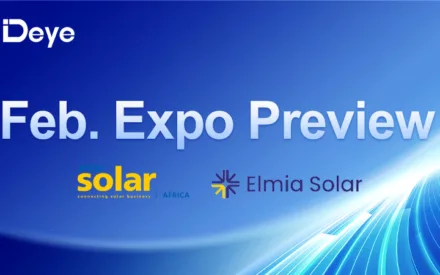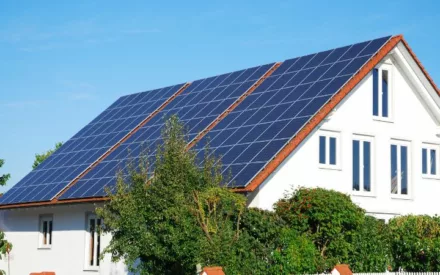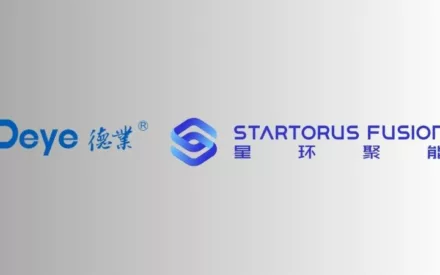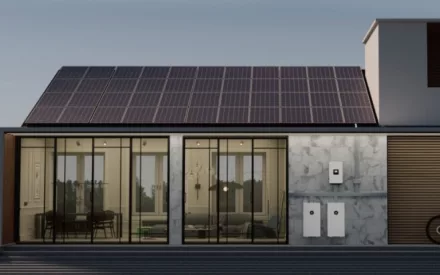AC vs DC Coupled Solar Batteries: What’s Best for Your Solar Setup?
Thinking about adding batteries to your solar setup? You might be wondering about AC and DC-coupled batteries. These terms refer to how your solar panels connect to your battery storage system.
AC-coupled batteries connect to your home’s electrical system after the solar inverter, while DC-coupled batteries connect directly to your solar panels before the inverter. This difference affects how efficiently your system stores and uses energy.
DC-coupled systems are often more efficient because they avoid extra energy conversions. But AC-coupled systems can be easier to add to existing solar setups. Your choice depends on your goals and current setup. Let’s explore how these options can work for you and help you get the most from your solar investment.
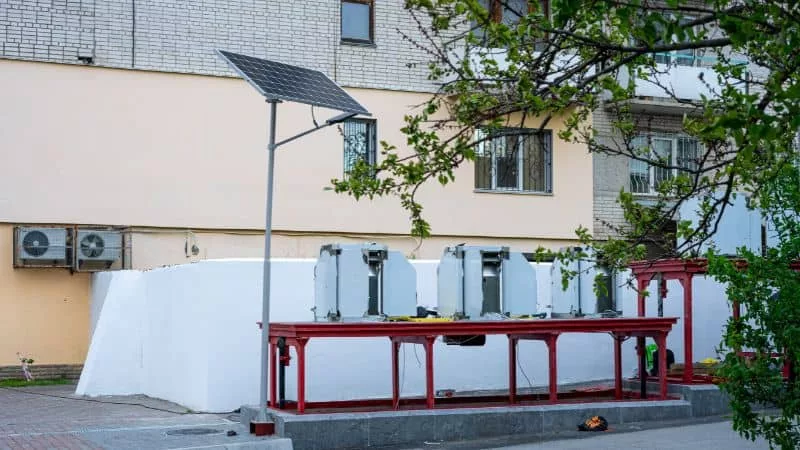
Understanding AC and DC
AC and DC are two types of electrical current used in power systems. They have different properties that affect how electricity flows and is used in various applications.
Basics of Direct Current and Alternating Current
Direct current (DC) flows in one direction. It’s the type of electricity produced by batteries and solar panels. DC voltage stays constant over time.
Alternating current (AC) changes direction many times per second. The voltage in AC systems goes up and down in a wave-like pattern. This is the type of power that comes from wall outlets in your home.
DC is great for portable devices and some industrial uses. AC works well for transmitting power over long distances and powering most household appliances.
Comparison of Electrical Current Types
AC power has some advantages over DC:
- It’s easier to change voltage levels
- It can travel longer distances with less power loss
- Most appliances are designed to use AC
DC power is better in some ways too:
- It’s more efficient for short distances
- It’s used in most electronics and batteries
- Solar panels produce DC power directly
The choice between AC and DC depends on the specific application. Some systems use both types and convert between them as needed.
Historical Context of AC and DC-Coupled Battles
In the late 1800s, there was a heated debate about which type of current should be used to power cities. This was called the “War of Currents.”
Thomas Edison backed DC power. He thought it was safer and already widely used. George Westinghouse and Nikola Tesla supported AC. They showed it could be sent over longer distances more cheaply.
AC won out for power grids because of its ability to cover large areas efficiently. But DC didn’t disappear. It’s still used in many electronics and is making a comeback in some power transmission projects.
Coupled Battery Systems
Solar battery systems come in different types. The main ones are AC-coupled and DC-coupled. They each have pros and cons. Let’s look at how they work and what sets them apart.
AC-Coupled Systems Explained
AC-coupled systems are pretty common. They use a regular solar inverter plus a battery inverter. Your solar panels make DC power. The solar inverter changes it to AC for your home. When you want to charge the battery, the AC power changes back to DC.
These systems are easy to add to existing solar setups. You don’t need to mess with your current solar gear. But they lose some power in all the switching between AC and DC.
AC-coupled systems work well if you already have solar panels. They’re flexible and let you use power from the grid or your panels.
DC-Coupled Systems Explained
DC-coupled systems are more direct. They use one inverter for both solar panels and batteries. The DC power from your panels goes straight to the battery. When you need power, it changes to AC for your home.
These systems are more efficient. There’s less power lost because the electricity doesn’t change back and forth as much. They’re great for new solar installs with batteries.
DC-coupled systems can be cheaper to set up. They need less gear. But they’re harder to add to existing solar systems.
Hybrid Coupling Alternatives
Hybrid systems mix AC and DC coupling. They use a special hybrid inverter. This setup gives you the best of both worlds. You can charge your batteries directly with DC power from your panels. But you can also use AC power from the grid. This flexibility is handy.
Hybrid systems work well for new installs or upgrades. They’re efficient and adaptable. You can easily add more panels or batteries later. These systems cost more upfront. But they can save you money over time. They give you lots of options for managing your power.
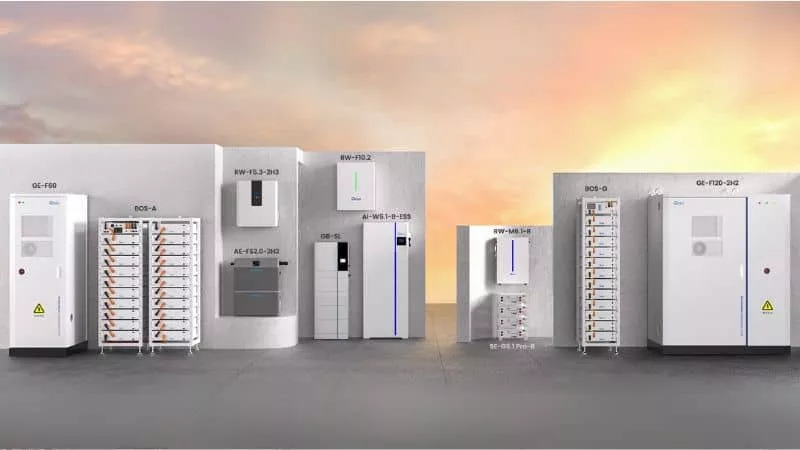
If you’re looking for reliable energy storage, consider Deye’s offerings. Whether you are maximizing efficiency with a DC coupled system or looking to easily upgrade an existing AC coupled setup, Deye’s battery solutions provide the versatility and reliability needed to enhance your solar energy system.
Contact us today to discuss your energy storage needs!
Installation and Setup
The installation process, costs, and ability to add to existing setups differ between AC and DC-coupled systems. Let’s look at what you need to know.
Installation Procedures for AC and DC Systems
For AC coupled systems, you’ll need to install a separate battery inverter. This connects to your existing solar inverter. The process is often simpler, as it doesn’t require changes to your solar setup.
DC coupled systems involve replacing your solar inverter with a hybrid inverter. This handles both solar and battery power. The install is more complex but can be more efficient.
In both cases, you’ll need to:
- Mount the battery
- Connect wiring
- Set up monitoring systems
A pro can usually finish the job in 1-2 days. Make sure to pick a spot that’s cool and dry for your battery.
Cost Ratios and Effectiveness
AC coupled systems typically cost less upfront. You’re adding to your existing setup rather than replacing parts. Prices can range from $7,000 to $15,000.
DC systems often have higher initial costs. You’re paying for a new hybrid inverter along with the battery. Expect to spend $10,000 to $20,000.
But DC systems are more efficient. They lose less power in the conversion process. Over time, this can lead to energy savings. You might see 5-10% better performance compared to AC systems.
Your savings will depend on:
- Local energy prices
- How much solar power you use
- Battery size
Retrofitting Existing Solar Systems
If you already have solar panels, adding an AC coupled battery is often easier. You won’t need to change your current inverter. This makes it a popular choice for upgrades.
Steps for retrofitting:
- Check your system’s compatibility
- Choose a battery size
- Install the battery and new inverter
- Update your monitoring setup
DC coupling is trickier for existing systems. You’ll need to swap out your inverter. This can be costly and complex. But it might be worth it if you want max efficiency.
Some newer systems are “storage-ready.” This means they’re built to easily add batteries later. Check if yours has this feature before deciding.
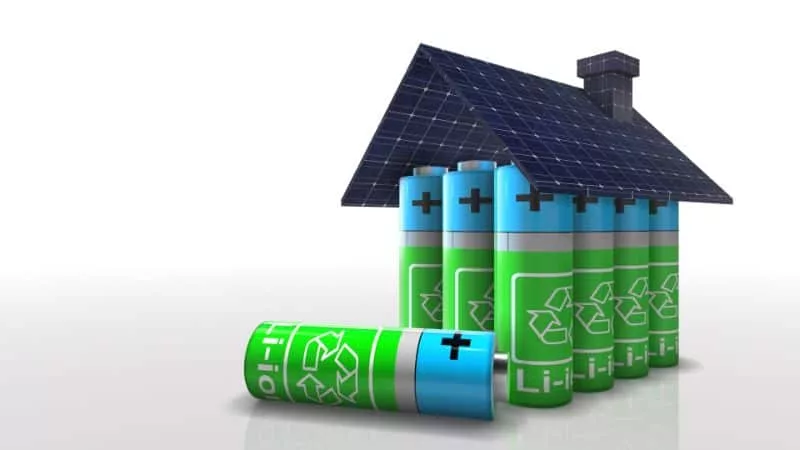
System Performance and Efficiency
AC and DC coupled battery systems have different levels of performance and efficiency. The way they handle energy conversion impacts how much power you can use from your solar panels and batteries.
Evaluating System Efficiency
DC coupled systems are often more efficient than AC coupled ones. This is because DC systems only need to convert electricity once. Your solar panels make DC power, which goes straight to the batteries. When you need power, it’s converted to AC for your home.
AC coupled systems convert power more times. Solar panels make DC, which is changed to AC. Then it’s changed back to DC to charge the batteries. When you use the power, it’s changed to AC again. Each change loses a bit of energy.
Recognizing Efficiency Losses
Every time electricity changes form, you lose some energy. This is called conversion loss. DC coupled systems have fewer conversion steps, so they lose less energy overall.
In AC systems, you might lose 2-3% of energy with each conversion. This can add up, especially if you use your batteries a lot. Heat is another source of energy loss. As parts work to change electricity, they get warm. This heat is wasted energy.
Wiring in your system can also cause small losses. Longer wires or thinner ones can waste more power.
Comparing Round-Trip Efficiency
Round-trip efficiency measures how much energy you get back from what you put into your batteries. It’s like filling a bucket with water and then pouring it out. You want to get as much water back as possible.
For batteries, DC coupled systems often have better round-trip efficiency. You might get 90-95% of the energy back. AC systems typically return 85-90% of the energy you put in.
This difference can be big over time. If you store a lot of power, a DC system could save you more energy in the long run. But AC systems are easier to add to existing solar setups, which might be worth the trade-off for you.
Sustainability and Scalability
AC and DC coupled batteries offer different options for growing your home energy system over time. Let’s look at how each approach impacts your ability to expand and future-proof your solar investment.
Expanding Your Energy Storage
With AC coupled systems, adding more batteries is easy. You can increase storage capacity without changing your existing solar setup. This flexibility lets you start small and grow as needed.
DC coupled systems make expansion a bit trickier. You may need to upgrade other components when adding batteries. But DC coupling is very efficient for charging batteries from solar panels.
To expand either type of system:
- Check your current energy use
- Figure out how much more storage you want
- Talk to a solar pro about the best way to add capacity
Future-Proofing Solar Investments
Thinking ahead can save you money and hassle. AC coupling works well if you’re not sure about future needs. It’s simple to add batteries later without big changes.
DC coupling shines for new installs planned with storage from the start. It’s super efficient but less flexible for changes.
Tips for future-proofing:
- Choose equipment that can grow with you
- Leave room in your electrical panel for add-ons
- Pick a battery brand with a range of sizes
Your energy goals matter too. If you want to go off-grid someday, plan for that now. It’s easier to build a system that can disconnect from the grid from the beginning.
Integrating with the Grid
AC and DC coupled batteries can connect to the power grid in different ways. This affects how you use and benefit from your energy storage system.
Grid-Tied vs. Off-Grid Considerations
Grid-tied systems let you stay connected to the power grid. You can use grid power when needed and sell excess energy back. This gives you more flexibility and backup options.
Off-grid systems work independently from the main power grid. They rely completely on solar panels and batteries. These are great for remote areas without grid access.
Grid-tied inverters help sync your system with the grid’s voltage and frequency. This allows smooth power flow both ways. Off-grid installations need careful planning. You’ll need enough solar panels and battery capacity to meet all your energy needs.
Participating in Demand Response Programs
Demand response programs let you earn money by adjusting your power use. Your utility may ask you to reduce usage during peak times. With batteries, you can easily join these programs. You can switch to battery power when the grid is stressed.
Some utilities offer special rates for battery owners. You might get cheaper electricity if you charge at night and use battery power during the day. Your battery system can automatically respond to utility signals. This helps balance the grid and could lower your bills.
Choosing the Right Battery System for Your Needs
Picking between AC and DC coupled batteries depends on your home’s energy needs and setup. Think about how much power you use and how complex you want your system to be.
Evaluation of Home Energy Needs
Look at your power bills to see how much energy you use each month. This will help you figure out what size battery you need. If you use a lot of power, a DC coupled system might be better. It’s more efficient and loses less energy when storing solar electricity.
Think about when you use power most. Do you need backup during outages? Or do you want to save money by using stored power at night? Your goals will affect which system works best for you.
Also, consider if you already have solar panels. AC coupled batteries are easier to add to existing setups.
Analyzing System Complexity
DC coupled systems are simpler. They have fewer parts and convert power less often. This means less energy loss. But they can be harder to set up if you don’t already have compatible solar panels.
AC coupled batteries are more flexible. You can add them to most systems. They’re easier to expand later if your needs change. But they have more parts, which can mean more things that could break.
DC systems might need more know-how to install and maintain. AC systems are often simpler to use and understand. Your budget matters too. DC systems can cost less upfront but might be pricier to expand. AC systems might cost more at first but can be cheaper to grow over time.

